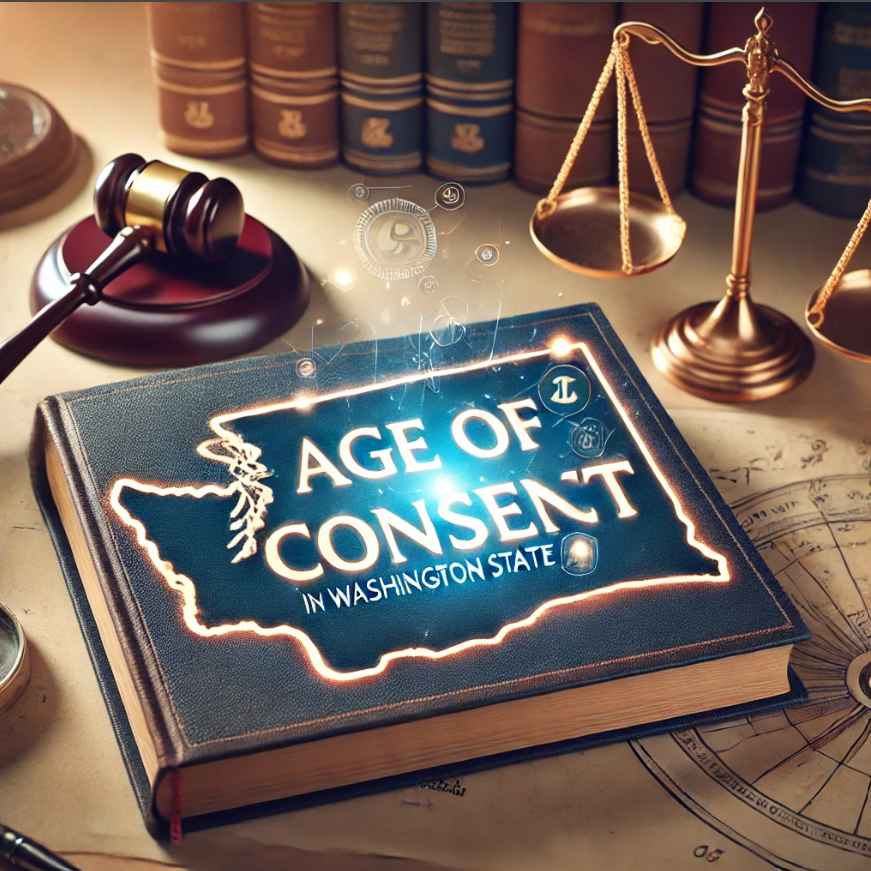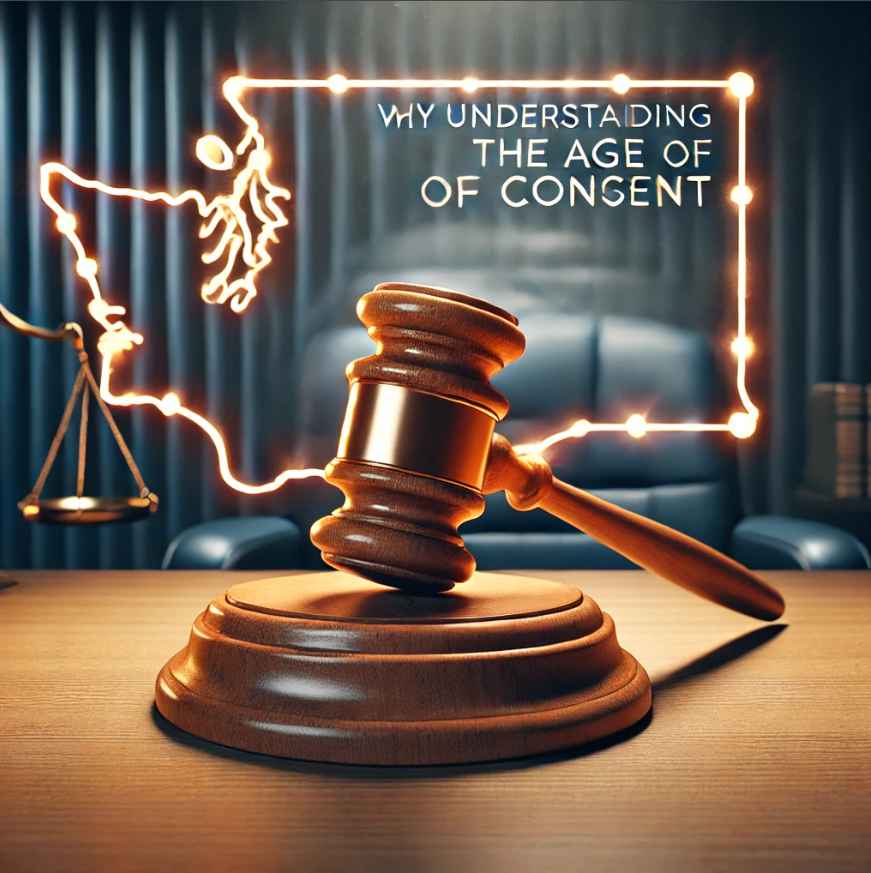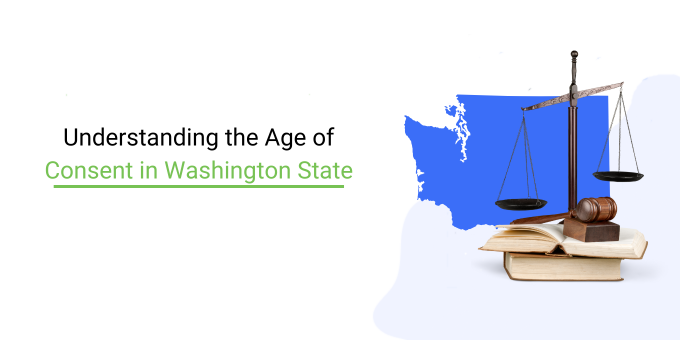Navigating the laws surrounding the age of consent Washington can be challenging, especially when each state has its own specific rules and guidelines. In Washington State, the age of consent is a crucial legal boundary that determines the legality of consensual sexual activities. This article will explore the age of consent in Washington State, provide insights into the laws governing these matters, and discuss their implications for individuals.
What is the Age of Consent in Washington State?
The age of consent in Washington State is 16 years old. This means that individuals who are 16 or older can legally engage in consensual sexual activities. However, there are significant caveats to this rule, especially when it comes to relationships involving power dynamics, authority figures, or large age differences.

While the age of consent is 16, Washington State law has additional provisions to protect younger individuals from exploitation. For example, individuals who are in a position of authority or trust—such as teachers, coaches, or employers—may still face legal consequences if they engage in sexual relationships with minors, even if the minor is 16 or older. These provisions ensure that consent is not coerced or influenced by unequal power dynamics.
Related Article: Understanding Consent Laws in Virginia and West Virginia
Understanding Age of Consent Laws in Washington State
Age of consent in Washington State are designed to balance the protection of minors with the recognition of their autonomy as they grow older. These laws establish clear boundaries while addressing potential gray areas through specific exceptions and protections.
One key aspect of Washington’s laws is the “Romeo and Juliet” clause. This clause provides leniency for consensual relationships between minors who are close in age. For example, if one individual is 15 and the other is 17, the relationship may not lead to legal penalties. However, this provision is limited and does not apply to significant age gaps or situations involving authority figures.
It’s also essential to understand that the laws surrounding the age of consent in Washington State apply regardless of gender or sexual orientation. These laws are intended to offer equal protection and accountability for all individuals, ensuring that no one is subjected to exploitation or abuse.
Legal Consequences of Violating Age of Consent Laws
Violating age of consent laws in Washington State can lead to severe legal consequences. These violations are often categorized under charges such as statutory rape or sexual misconduct. The severity of the charges depends on factors such as the ages of the individuals involved, the presence of coercion or authority, and the nature of the relationship.
For instance:
- First-degree statutory rape: This involves sexual activity with a minor under the age of 12 and carries the harshest penalties, including significant prison time and mandatory registration as a sex offender.
- Second-degree statutory rape: This applies when an individual engages in sexual activity with a minor aged 12 to 14.
- Third-degree statutory rape: This charge applies when the minor is 14 or 15, and the other party is at least four years older.
These laws underscore the importance of understanding and respecting the age of consent in Washington State to avoid potentially life-altering legal repercussions.
Why Understanding the Age of Consent is Crucial
Awareness of the age of consent in Washington and the associated laws is vital for both minors and adults. For minors, it’s about knowing their rights and recognizing situations that may not be safe or consensual. For adults, it’s about ensuring that their actions are legal and ethical.

Misunderstanding or ignorance of these laws is not a valid defense in court. Therefore, taking the time to learn about the age of consent laws in Washington State can help individuals make informed decisions and avoid unintended violations.
How Washington’s Laws Compare to Other States
The age of consent in Washington State is consistent with many other states in the U.S., where the age is also set at 16. However, some states have higher ages of consent, such as 17 or 18, or additional provisions that differ significantly.
For example, states like California have stricter age of consent laws, with the minimum age set at 18. Understanding these differences is particularly important for those who travel frequently or have relationships across state lines. Engaging in activities that are legal in one state but not in another can lead to complex legal challenges.
Resources for Learning More About Washington’s Age of Consent Laws
For those seeking more information about the age of consent in Washington State or related legal matters, the following resources can be helpful:
- Washington State Legislature: The official website provides detailed information about the state’s laws, including statutes related to age of consent.
- Local Legal Aid Organizations: These groups can offer guidance and support for individuals who have questions or concerns about their rights and responsibilities.
- Counseling and Support Services: For minors or individuals who may have experienced exploitation, these services provide crucial emotional and legal assistance.
Conclusion
Understanding the age of consent Washington State is essential for navigating relationships responsibly and legally. These laws, while straightforward in their basic definition, include nuances designed to protect minors from exploitation while respecting their autonomy. Whether you’re a minor, a parent, or an adult in a relationship, knowing these laws helps ensure that all interactions are consensual, ethical, and lawful.
By fostering awareness and respect for the age of consent in Washington State, individuals can contribute to a safer and more informed community

